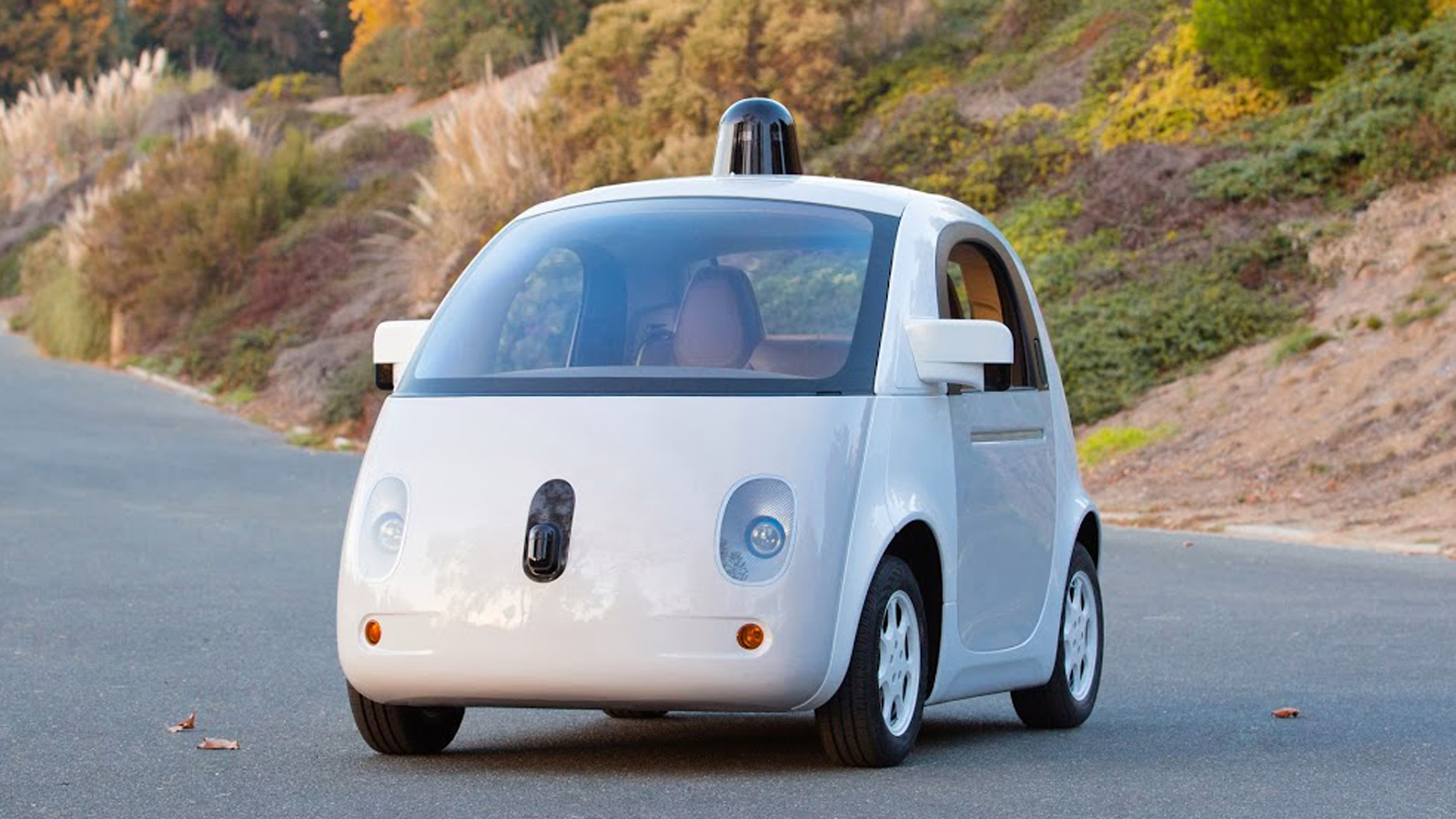Google's self-driving cars might try and talk to pedestrians
"Watch where you're going"

Sign up for breaking news, reviews, opinion, top tech deals, and more.
You are now subscribed
Your newsletter sign-up was successful
The development of autonomous automobiles is progressing at a rapid rate, but there's still a lot of work to do before these self-driving vehicles are legally allowed on the roads without a team of testers. One outstanding issue is exactly how these cars will interact with pedestrians.
A patent received by Google this week sheds some light on the company's current thinking: electronic signage on the body of the car would be used to indicate the vehicle's current intentions, so - for example - someone would know it was safe to cross in front of it.
Of course as the human passengers will be busy playing chess or snoozing in the back seat, the usual forms of communication between driver and pedestrian are out - there'll be no waving of the hands or flashing of the lights to give right of way.
"No, after you"
As with Google's other patents for its self-driving car fleet, such as the one for external airbags, there's no guarantee that these displays will make it to the final road-ready vehicles, but it's a smart idea nevertheless.
The documentation supplied with the patent suggests the signs might be accompanied by loudspeakers blaring out alerts for the benefit of anyone nearby: if you're stood in the wrong place at a pedestrian crossing then the car will be able to put you right.
Google isn't the only one working on self-driving car technology of course, and at this stage all the major manufacturers are busy trying to refine software and hardware to get us from A to B in the future. New cars hitting the roads should have at least some level of autonomous functionality within the next five years.
Sign up for breaking news, reviews, opinion, top tech deals, and more.

Dave is a freelance tech journalist who has been writing about gadgets, apps and the web for more than two decades. Based out of Stockport, England, on TechRadar you'll find him covering news, features and reviews, particularly for phones, tablets and wearables. Working to ensure our breaking news coverage is the best in the business over weekends, David also has bylines at Gizmodo, T3, PopSci and a few other places besides, as well as being many years editing the likes of PC Explorer and The Hardware Handbook.